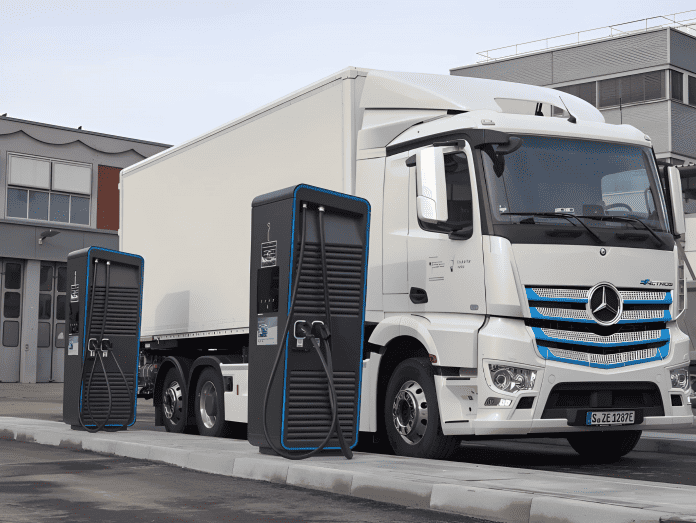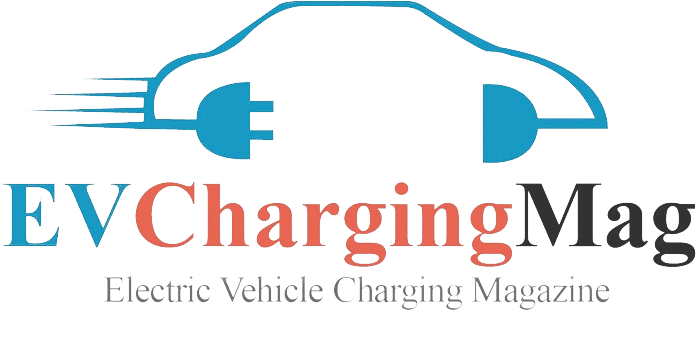Transportation, a major contributor to global greenhouse gas (GHG) emissions, is undergoing a crucial shift towards cleaner solutions. Electric vehicles (EVs), including next-generation (next-gen) electric trucks, are poised to play a pivotal role in this transition, offering environmental and economic benefits. However, their widespread adoption hinges on the development of a robust and efficient charging infrastructure.
A recent report by IDTechEx sheds light on this critical aspect, highlighting the latest advancements in charging infrastructure specifically designed for next-gen trucks. These advancements aim to address the unique challenges associated with their larger battery capacities, longer driving ranges, and heavier weight compared to passenger EVs.
Megawatt Charging System (MCS): Powering the Future of High-Performance Charging
One of the most promising innovations is the Megawatt Charging System (MCS). This standardized technology, currently under development, boasts the potential to significantly reduce charging times for next-gen trucks. While conventional charging stations offer power outputs in the range of 150-350 kW, MCS is designed to deliver megawatt-level power, enabling rapid charging cycles even for large battery packs.
This rapid charging capability is crucial for optimizing the operational efficiency of next-gen trucks, particularly for long-haul fleets. By minimizing charging downtime, MCS can ensure that trucks spend less time parked and more time on the road, maximizing their productivity and contributing to overall fleet profitability.
Beyond Speed: Addressing Thermal Management and Grid Integration
Implementing MCS, however, presents certain challenges. The high power levels involved necessitate robust thermal management systems to prevent overheating of cables, connectors, and vehicle batteries. Additionally, integrating this technology into the existing electrical grid requires careful consideration to ensure grid stability and prevent potential disruptions.
Battery Swapping: A Viable Option for Specific Applications
While MCS represents a significant step forward for high-power charging, battery swapping emerges as another viable option for certain truck segments. This technology involves exchanging depleted batteries for fully charged ones, enabling rapid “refueling” within a matter of minutes.
IDTechEx reports that battery swapping currently holds a significant share of the electric truck market in China, particularly for short-haul and urban delivery applications. This is due to factors like the lower upfront cost of trucks with smaller batteries and the convenience of rapid battery exchange, especially for vehicles operating on fixed routes with readily accessible swap stations.

Investing in the Future: Embracing Innovation for a Sustainable Transportation Landscape
The development of innovative charging infrastructure, including MCS and battery swapping solutions, is critical for facilitating the widespread adoption of next-gen electric trucks. These advancements hold the potential to revolutionize the transportation sector by:
- Reducing reliance on fossil fuels and associated GHG emissions.
- Enhancing air quality, particularly in urban areas.
- Promoting energy independence and national security.
- Driving economic growth through job creation in new technology sectors.
A Collaborative Approach for a Greener Future
The transition to cleaner and more sustainable transportation requires a collaborative effort between various stakeholders, including:
- Truck manufacturers: Investing in research and development of next-gen truck technologies, including battery optimization and compatibility with various charging infrastructure solutions.
- Charging infrastructure providers: Developing and deploying efficient and reliable charging solutions, such as MCS and battery swapping stations, at strategic locations along major transportation corridors.
- Government agencies: Enacting policies and regulations that incentivize the adoption of electric trucks and facilitate infrastructure development.
- Energy sector stakeholders: Ensuring a reliable and sustainable electricity grid capable of supporting the increased charging needs of a growing electric truck fleet.
By working together, these stakeholders can unlock the full potential of next-gen electric trucks, paving the way for a cleaner, more sustainable, and resilient transportation future.

